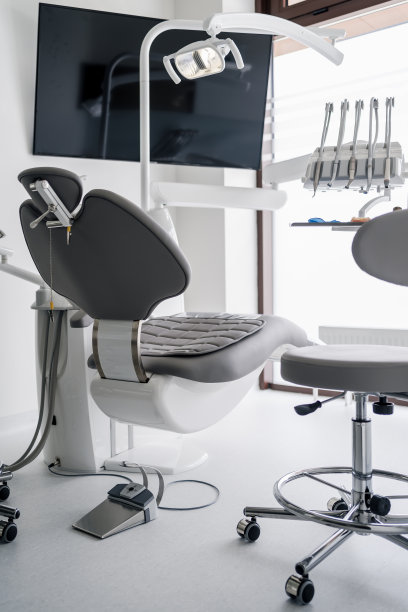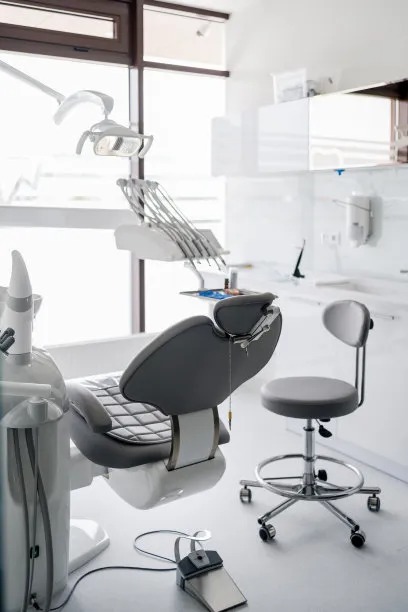Summary: Dental implantation has emerged as a renowned solution for restoring oral functionality and aesthetics. However, successful outcomes hinge on meticulous adherence to essential guidelines and precautions preceding and following the procedure. This article outlines key components like pre-surgical planning, post-operative care, nutrition management, and oral hygiene practices, all aimed at achieving optimal healing and long-term oral health recovery. By understanding and applying these principles, patients can significantly enhance the likelihood of successful dental implantations while ensuring a seamless path to recovery.
1. Pre-Surgical Planning: Key to Success

Effective pre-surgical planning is the cornerstone of successful dental implantation. It involves a thorough assessment of the patients dental and medical history, which can reveal potential complications. Comprehensive imaging techniques like X-rays and CT scans help the dentist evaluate the jawbone structure, allowing for a tailored approach to each patient’s needs.
Moreover, identifying lifestyle factors such as smoking or chronic health conditions is crucial. Such elements can influence healing times and the overall success rate of the implants. Thus, consulting with the dental team about existing medical issues ensures all necessary precautions are communicated.
Its also important for patients to have realistic expectations about the procedure and recovery timeline. This clarity helps alleviate anxiety and prepares them for the outcomes they can expect following the implants.
2. Post-Operative Care: Ensuring Optimal Healing
Post-operative care plays a pivotal role in ensuring optimal healing after dental implant surgery. Following the procedure, patients are typically advised to take prescribed medications as directed, which may include antibiotics and pain relief to minimize discomfort and prevent infection.
Additionally, patients should also adhere to specific activity restrictions. Activities that could put undue pressure on the implant site, such as heavy lifting or vigorous exercise, should be avoided during the initial recovery period. This ensures that the implant has the best chance to integrate with the bone.
Icing the area post-surgery can significantly reduce swelling. Implementing this simple technique demonstrates how tangible adjustments can enhance healing, underscoring the importance of following post-operative instructions meticulously to ensure a smooth recovery process and maximize the chances of successful outcomes.
3. Nutritional Management: Fueling Recovery
Nutritional management is vital in supporting recovery during the healing process of dental implants. A balanced diet rich in vitamins and minerals facilitates faster healing and encourages strong bone growth. Foods high in calcium and Vitamin D should be prioritized, as they help maintain bone density and support the integration of the implant.
Additionally, avoiding hard or crunchy foods is recommended right after the surgery. Choosing softer options, such as smoothies, yogurt, and pureed foods, minimizes strain on the healing gums and bones. This approach reduces the risk of irritation and ensures that the implant maintains its stability during the crucial early healing phase.
Staying hydrated is also essential throughout the recovery process. Clear fluids not only keep the body hydrated but also assist in the overall healing process, promoting better circulation and nutrient absorption essential for recovery.
4. Oral Hygiene Practices: Crucial for Longevity
After dental implantation, maintaining proper oral hygiene practices becomes even more critical. Regular brushing and gentle flossing around the implant area help prevent plaque buildup and reduce the risk of infections that can compromise implant success.
Patients should be educated on the use of an antibacterial mouth rinse, which can help keep the surgical area clean and promote healing. This practice helps in minimizing the bacteria level in the mouth and supports tissue regeneration.
Regular follow-up visits with the dentist are crucial. These appointments allow the dental professional to monitor the implant site for any signs of potential complications and to ensure that the healing process is proceeding as expected. Establishing a consistent routine for oral health checks can play an important role in the longevity of dental implants.
Summary:
Successful dental implantation requires a multifaceted approach, from pre-surgical planning to post-operative care and ongoing oral hygiene. By proactively engaging in these essential guidelines and precautions, patients position themselves for optimal recovery and lasting oral health. The integration of proper nutrition and diligent follow-up strengthens this foundation, helping ensure that dental implants thrive for years to come.
This article is compiled by Vickong Dental and the content is for reference only
Vickong Dental
Vickong Dental is a large medical group established in Hong Kong in 2008 by professors from well-known medical universities in Guangdong and Hong Kong, as well as medical doctors from key national '985' universities (including Master's supervisors and senior professors). The chain of branches brings together expert dentists with PhDs and Master's degrees from Hong Kong and Mainland China, committed to providing high-quality dental treatment.
"Vickong Dental Practices the University Motto of 'Healing and Serving Society,' with a Stable Operation for Sixteen Years. It Has Been honored with Hong Kong Enterprise Leaders's Choice,' and is a Global Trusted Implant Center for the Nobel Implant System. Recommended by Hong Kong Metro Broadcast and Guangdong Television, it Serves Customers from Over Thirty Countries and Regions, Gaining the Trust and Favor of Citizens from the Guangdong-Hong Kong-Macau Greater Bay Area and Surrounding Cities.

Thousands of customers' unanimous praise
The most recognized and highly recommended dental service by customers in the Guangdong-Hong Kong-Macau Greater Bay Area
We Ensure You Receive Detailed Care and Attention Here
Hong Kong standards, Shenzhen prices, Your Trusted English-speaking dentists

Vickong Dental Medical-Grade Instrument Disinfection Process
Vickong Dental Medical-Grade Instrument Disinfection Process

Vickong Dental Chain: A Warm and Comfortable Environment for Treatment






Appointment Hours

Q&A
Why choose Vickong Dental?
Vickong Dental practices the university motto 「Medicine to Benefit Society」, with each branch bringing together highly qualified dentists with doctoral and master’s degrees from Hong Kong and the Mainland, and has maintained seventeen years of steady operation。Recipient of 「2024 Hong Kong Enterprise Leaders Brand」, 「2025 Hong Kong Enterprise Leaders Brand」, a Nobel Biocare Global Trusted Implant Center, and a brand recommended by Metro Radio Hong Kong and Guangdong TV。
To date, we have served customers from more than thirty countries and regions,earning exceptionally high word-of-mouth recognition and trusted recommendations from residents across the Guangdong-Hong Kong-Macao Greater Bay Area and surrounding cities
We have eight major branches in Zhuhai、Shenzhen,and a consultation and service assurance center in Hong Kong,so you can book a free consultation at any time for any questions,which is very reassuring.
If I do not accept the quotation after the CT scan, will I be charged??
No! As long as the actual treatment has not started, you will not be charged any fees.
Will there be any additional charges during the treatment process?
No, there won’t be any additional charges. Before treatment begins, we will clearly explain the treatment plan and its corresponding fees. Only after the patient agrees and signs the consent form will we proceed with the dental service.
Can I pay in Hong Kong dollars?
Yes. Vickong Dental accepts payment in Hong Kong dollars. The amount will be converted based on the exchange rate of the day, and the applicable rate will be clearly communicated to you in advance.
Can I reschedule my appointment at any time?
Yes. Please contact us via **WeChat** or **WhatsApp** as early as possible, providing your original appointment time and details, along with your preferred new date and time slot for rescheduling.













